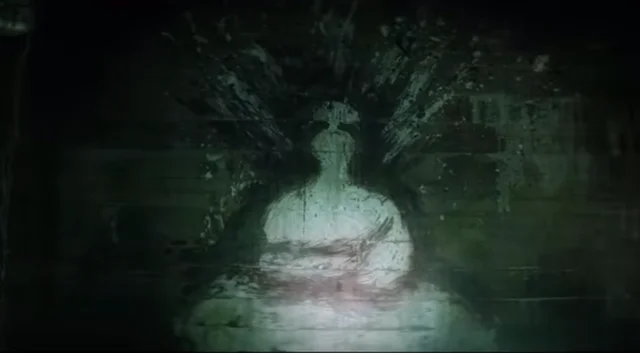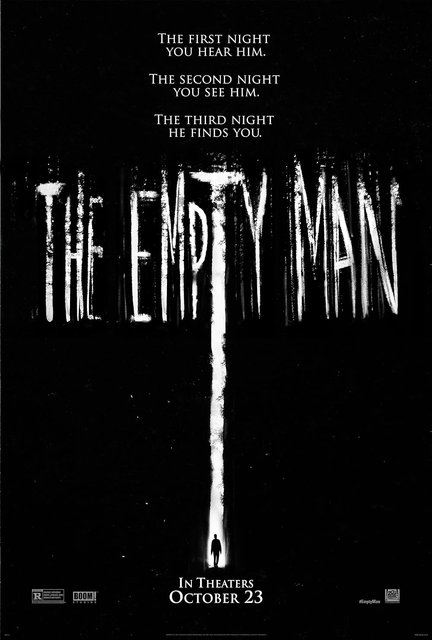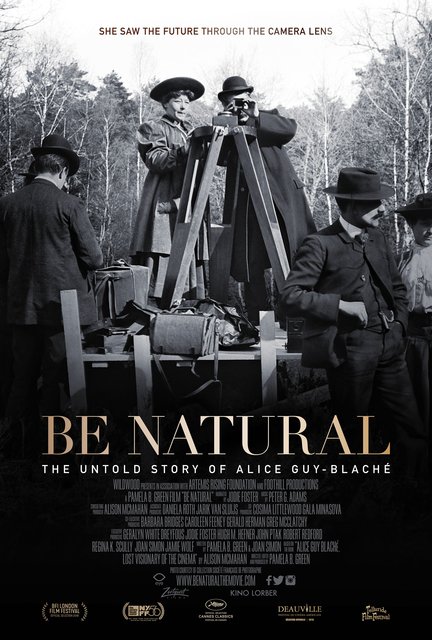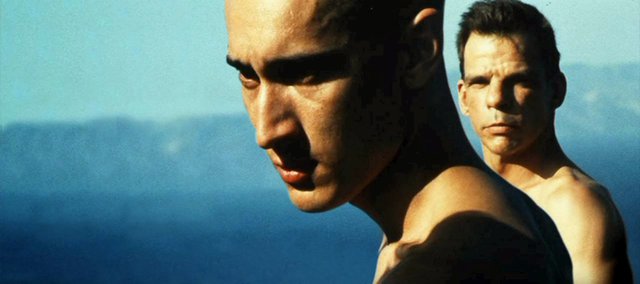
THE EMPTY MAN (2020)
Directed by : David Prior
The Empty Man isn't your usual psychological horror romp - not nearly as much as the trailer would have you believe. It's a little messy, but tries hard to weave an undercurrent of philosophy and complexity into the narrative. It starts with a 15-minute (this film is in no hurry, it goes for 137-minutes - unusual for a horror film of this type) prologue set in the Ura Valley of Bhutan, with four hikers stumbling across something ancient buried in the rock - it's a short film in and of itself, with a beginning, middle and end. Cut forward 23 years, to the present day so to speak, and we're introduced to James Lasombra (James Badge Dale), an ex-cop who now works at a security/self defense shop. His neighbour, Nora Quail (Marin Ireland), whom he's close to has a daughter who has seemingly run away (but not before daubing "The Empty Man made me do it" in animal blood on a bathroom window.) James agrees to help Nora find this daughter, Amanda (Sasha Frolova), and so begins a The Ring-type investigation which will entangle James into the mythos of what The Empty Man really represents, and what it is.
I can't say too much, because this film is a journey of discovery, but I can say that there's a cult involved, and that Stephen Root pops up as leader Arthur Parsons, spouting much nihilist philosophy. I guess with a title like The Empty Man we shouldn't be surprised. I think, therefore I am, but what about the rest of it - isn't it dubious? I think about these things all of the time, and although this film dabbles, it is in the end a horror film and the plot must come first. Horror-wise, the film is pleasingly light on jump-scares and gets by with some decent imagery without over-exposing specifics. There's a creepy mass suicide which is going to stick with me. Does it all make perfect sense though? I'd have to look into the film more carefully to know that, although the golden caveat of "all of that wasn't actually real" can be applied so liberally in this movie, which makes just about anything dismissible. I have to re-emphasize - this is one damn long horror movie, and it crams a lot in.
So, I walked away from this movie thinking that I was happy that it was so ambitious (unusual these days), but unhappy that it ended up feeling a little muddled. Everything doesn't fit neatly into place, and making sense of it as a whole feels like it would be an exercise akin to formulating a modern conspiracy theory. I did like the effort the film went to in regards to including themes that link up with depression, loss, pain, anger, grief, and fear, while touching on suicide. We get a lot of warnings about triggers these days, but I guess if you decide to watch a horror film it's on you if you become messed up by watching it - chances are it will touch on many of these themes. What I hate the most is animal cruelty - and the only thing related to that in The Empty Man is an encounter with an already-dead dog. To those who constantly wish modern horror films would be a bit more intelligent and more meaningful, The Empty Man is a really ambitious try at doing just that. It doesn't all come off, and it doesn't spook or scare as much as it should, but there's a lot to it that's interesting and you walk away with a lot to think about. That's worth some praise, at least.
Glad to catch this one - it's based on Cullen Bunn & Vanesa R. Del Rey's The Empty Man graphic novel series published by Boom! Studios. Ended up being a box office bomb, but is picking up a strong cult following.

Watchlist Count : 428 (-22)
Next : HyperNormalisation (2016)
Next : HyperNormalisation (2016)
Thank you very much to whomever inspired me to watch The Empty Man.
__________________
Remember - everything has an ending except hope, and sausages - they have two.
Latest Review : Double Down (2005)





























